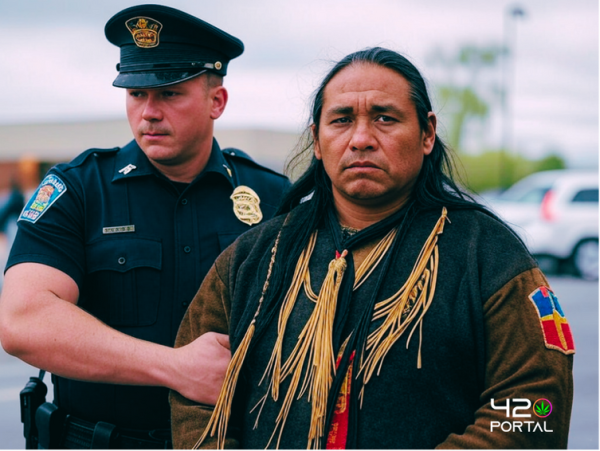Minnesota Judge Rules State Can Prosecute Marijuana Crimes on Reservations

03/14/2025
In a landmark decision, a Minnesota district court judge ruled that the state retains the authority to prosecute Native Americans for marijuana-related crimes on most tribal reservations, even after the legalization of recreational cannabis in 2023. This ruling, issued earlier this month, marks the first significant judicial interpretation of state law enforcement’s jurisdiction over marijuana in Indian Country since Minnesota became the 23rd state to legalize adult-use cannabis.
The case centers on Todd Thompson, a White Earth Nation citizen, who faces felony charges for possessing and selling large amounts of marijuana without a license from his tobacco store in Mahnomen.
The ruling hinges on Public Law 280, a federal statute granting Minnesota jurisdiction to prosecute tribal members for criminal acts on certain reservations, including White Earth. Thompson and his attorney, Claire Glenn, argued that post-legalization, marijuana possession and sales should be treated as regulatory rather than criminal matters, falling outside state authority. However, Judge Seamus Duffy disagreed, asserting that possessing "non-personal, non-recreational amounts" of marijuana remains a crime under state law. The judge cited precedent, including a case involving illegal firearm possession on tribal land, to support his stance.
Thompson’s case stems from an August 2, 2023, raid—conducted just one day after legalization—where authorities seized 7.5 pounds of cannabis, 433 grams of marijuana wax, and nearly $3,000 in cash from his store. Facing up to five years in prison and a $10,000 fine, Thompson also invoked the 1855 Treaty with the Ojibwe, claiming it protects his usufructuary rights to sell marijuana. The judge rejected this argument, and Thompson’s legal team is now exploring appeal options, though criminal appeals typically require a conviction first.
This decision raises complex questions about tribal sovereignty and state authority, especially given Minnesota’s legalization goals of reducing racial disparities in marijuana enforcement. Thompson, a vocal advocate for Native rights, has a history of challenging state jurisdiction, successfully overturning fishing and wild rice harvesting citations in the past. As this case unfolds, it could set a precedent for how marijuana laws are enforced on reservations statewide.
Reference
The case centers on Todd Thompson, a White Earth Nation citizen, who faces felony charges for possessing and selling large amounts of marijuana without a license from his tobacco store in Mahnomen.
The ruling hinges on Public Law 280, a federal statute granting Minnesota jurisdiction to prosecute tribal members for criminal acts on certain reservations, including White Earth. Thompson and his attorney, Claire Glenn, argued that post-legalization, marijuana possession and sales should be treated as regulatory rather than criminal matters, falling outside state authority. However, Judge Seamus Duffy disagreed, asserting that possessing "non-personal, non-recreational amounts" of marijuana remains a crime under state law. The judge cited precedent, including a case involving illegal firearm possession on tribal land, to support his stance.
Thompson’s case stems from an August 2, 2023, raid—conducted just one day after legalization—where authorities seized 7.5 pounds of cannabis, 433 grams of marijuana wax, and nearly $3,000 in cash from his store. Facing up to five years in prison and a $10,000 fine, Thompson also invoked the 1855 Treaty with the Ojibwe, claiming it protects his usufructuary rights to sell marijuana. The judge rejected this argument, and Thompson’s legal team is now exploring appeal options, though criminal appeals typically require a conviction first.
This decision raises complex questions about tribal sovereignty and state authority, especially given Minnesota’s legalization goals of reducing racial disparities in marijuana enforcement. Thompson, a vocal advocate for Native rights, has a history of challenging state jurisdiction, successfully overturning fishing and wild rice harvesting citations in the past. As this case unfolds, it could set a precedent for how marijuana laws are enforced on reservations statewide.
Reference







